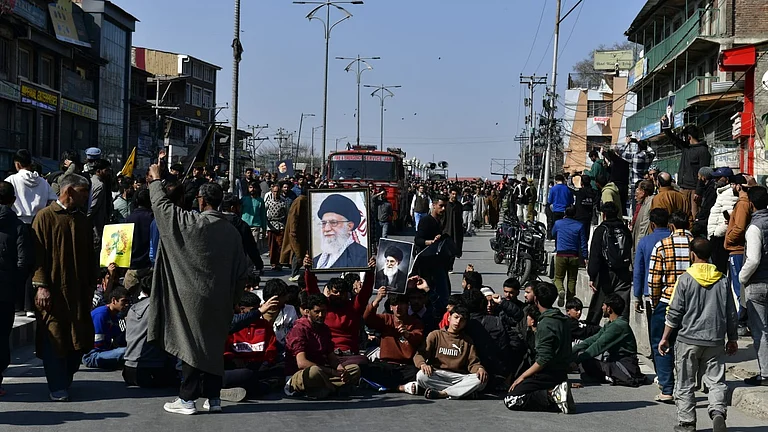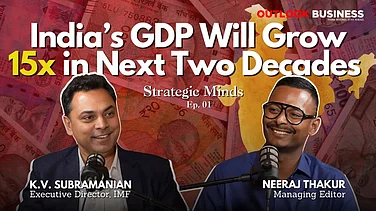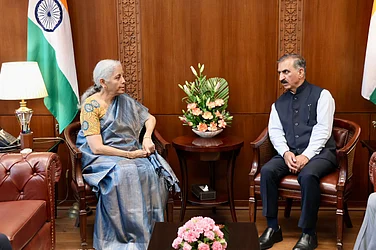What are the milestones of the last decade? And where did the reformsfail?
The biggest success is that we were able to turn conventional wisdom on itshead. The conventional wisdom was that the State must tax and spend, the publicsector was a better instrument than the private sector and that aGovernment-controlled economy assured a higher rate of growth. This has sincebeen turned on its head. We have come a long way in the last ten years. Trade ismore or less free, tariffs are coming down, market forces are at play in severalsectors of economy, the private sector is playing an increasingly larger role,there's reward for entrepreneurship. As a result, the 90s witnessed the highestrate of growth (over seven per cent). The failures are that we are not able tosustain this process, we have not convinced the political parties and bulk ofthe poor people, particularly the rural poor, that this is the way to progressand prosperity. As a result, there has been resistance at every stage. In thelast three years, there has been clear deceleration and in the last threemonths, it has come to a complete standstill. Ten years after the reformsstarted, if this country is in a bind and does not know which way to go, it's asad commentary on the system and even sadder commentary on those who launchedand articulated the reforms.
Which are the reforms you are happy with?
Trade reforms, abolition of licensing, opening of sectors that were closedfor the private sector, reforms in the financial sector, introduction ofcompetition in banking and insurance sectors are major milestones that anyonecan be proud of. But so much more needs to be done. The entire infrastructuresector is still a prisoner of the government. We have done nothing to downsizethe bureaucracy. We have tribunalised our regulatory bodies and bureaucratizedour regulators. We seem to be reaping all the disadvantages of giving upgovernment control and have introduced controls of another kind.
Narasimha Rao feels that liberalisation is at crossroads now and that themessage of the government is one of clearance sale...
I think Mr Rao was only an opportunistic reformer. It became clear when he(as Prime Minister) delivered a speech at that University in Germany on a middlepath somewhere in 1994. I remember talking to Dr Manmohan Singh at that time andhe was also surprised that he delivered such a speech. I think as far as he wasconcerned, the watershed was winning the vote of confidence. After that, hisheart was not in reforms, it was in politics and how to get reelected. As aresult, reforms did run into some obstacles in '94-'95. But we, both Dr Singhand I, persevered and pushed through some reforms. From what he is saying now,it's clear that he was neither committed nor convinced about reforms.
Did the reforms do in the Congress party?
No, the Congress lost the elections for a variety of reasons. Take onereason. They lost 40 seats in Tamil Nadu because they went into an alliance withAIADMK. They lost the elections because of state-specific issues and the overallperception of Mr Rao's government that it was willing to condone corruption. Idon't think reformers necessarily lose elections. Chandrababu Naidu has won, sohas Tony Blair.
Tell us your memories of those days? Was it very tough?
There were several tough moments. The first was devaluation. On July 3,1991, Mr Rao felt that the second stage of devaluation ought not to have beendone on that day. He tried to stop the second stage but nothing could be donebecause the RBI Governor had already issued the orders. But the first set oftrade reforms was pretty easy. Dr Singh wanted me to announce the abolition ofcash compensatory support (after stage two of devaluation) for exporters, but Isaid no Commerce Minister can start his career by abolishing this unless it ispart of a package. So, we went across to Mr Rao. He heard out both of us andasked what is the way out. I told him it cannot be announced as an isolated stepand must be part of a package of reforms. He said when will you be ready, I saidthis evening. By that evening, we drafted a 13-point package of trade reformsand took it across to Dr Singh and then to Mr Rao at his residence. I explainedthese 13 points very briefly to him and he asked Dr Singh, have you signed? DrSingh then signed and he signed too. So, some things went as easy as that.
When the rupee was dropping sharply in 1995 and somebody had to speak up, DrSingh asked me to do that. So I went to the office on a Sunday and held a pressconference to exporters to bring back their earnings to cushion the fall of therupee. In the UF government, there were some tough moments, one of them was thedismantling of APM. The other tough one was the PDS where our best option was toissue food coupons but most states were opposed to it. The next best option wasintroduction of APL/BPL (above the poverty line and below the poverty line).That took several weeks to negotiate through the steering committee and then theCabinet. These were top decisions that we took. There were odd instances of theCPI and CPM and an odd socialist in the Cabinet posing obstacles, but by andlarge everybody recognized the need for reforms. We did not last long enough tofollow through.
There is always a tussle between the reformer and the chronic capitalist and thereformer and the one who thinks State power is meant to make money. There wasone big issue over the Tata-SIA (Singapore International Airlines) proposal. Itwas a big row in the Cabinet and at one point of time, Mr Maran and Mr Ibrahimwere at each other's throats. It was obvious that successive Civil Aviationministers had scuttled the entry of Tata-SIA only to serve certain vestedinterests. Today, there's a determined effort to keep out competition toAir-India and Indian Airlines, except that Jet and Sahara already have theirshare of the market. It's the same with Maruti. The disinvestment should havebeen cleared then, but was stopped by vested interests.
Why did the reforms fizzle out?
Lack of performance. Also, there are not enough people who are convincedabout reforms — most people are convinced by the opposite. The reforms meanselectoral defeat and most people are convinced about that. Every government isbeing defeated, the BJP will be defeated in the next elections, not because ofreforms but for other reasons. This is because people have high expectations andonce they find that a government has served its term, it is voted out becausepeople want a change.
Who do you think was the best reformer?
At the theoretical level, certainly Dr Manmohan Singh is the centralarchitect of the reforms. But much of what he wanted to achieve was lost inimplementation. Many sectors opened up subsequently and most investment camelater and most of the regulatory agencies were set up later. There was a hugegap between his theoretical postulates and his commitment to reforms and hisability to oversee the implementation.
Why can't we have a committed team now just like in '91?
In 1991, I thought there were two and half reformers, the half being myselfbecause I was Minister of State for Commerce. Now I know Mr Rao was the halfreformer. In '96, we had more people accepting the rationale for reforms butunwilling to do it in their departments. Mr Vajpayee started off with a largernumber of reformers in his Cabinet but he has lost them one by one. Today, Ithink he has a Cabinet of anti-reforms, a cabinet of no changes. It's like theCongress of 1921. There were two groups then known as no-change and pro-change.There's hardly anyone in Mr Vajpayee's cabinet who is pro-change. One can partlyconcede that Finance Minister Yashwant Sinha is pro-change, but if you look atpower, petroleum or telecom, civil aviation, surface transport, railways,everybody is at least a status-quoist, if not one who wants a throwback to thepast.
Do you think we got caught in our own success?
No, there's not much success to boast about. We had a foreign exchangecrisis, a liquidity crisis and a stock market crisis. To some extent, the growthrate of seven percent (1994-97) induced some complacency. In 1997-98, it was hitby the Asian crisis and the domestic political crisis. After '98, Mr Vajpayeeshould have put together a team of young, committed members of his Cabinet. Ithink one last opportunity will be after he comes back from Mumbai. If he missesthat, one can kiss goodbye to 2001-2001. After that, people will start clamoringfor change. To catch up, five or six key ministries should bring in competentreformers, not necessarily see that as political handouts. You will see theimpact on three indices — the exchange rate, inflation rate and interest rate.All three indices will be affected if the slowdown deepens and the confidencedecreases. Every fact of reforms was under attack in recent elections in fiveStates, but the Finance Minister or Commerce Minister, the Industry Minister,the Power Minister or Minister for Railways did not appear anywhere to defendthe reforms. You would stand and speak for your policies, don't you? They didnothing.


















